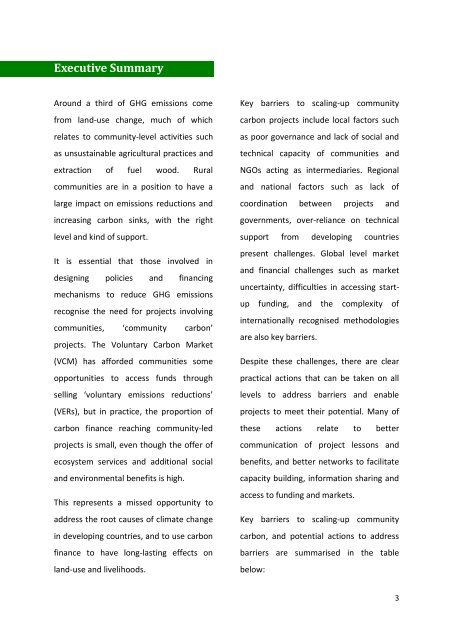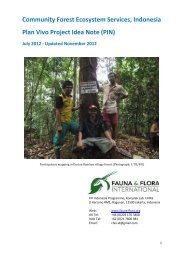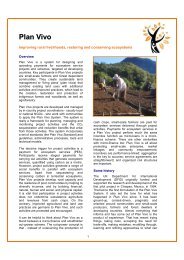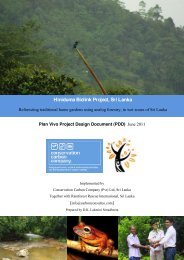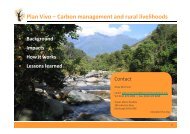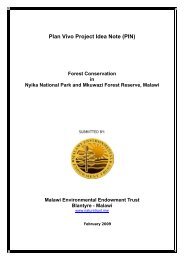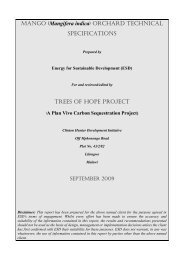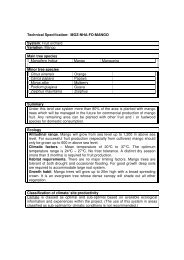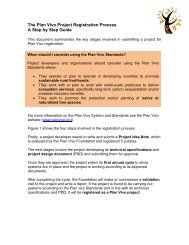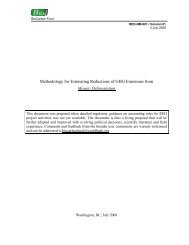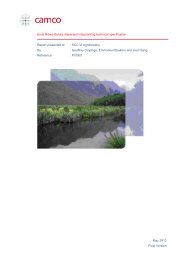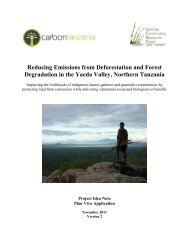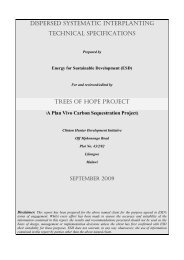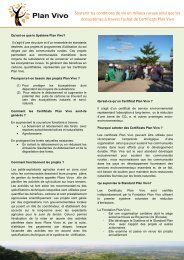Scaling-up Community Carbon Projects A roadmap - Plan Vivo
Scaling-up Community Carbon Projects A roadmap - Plan Vivo
Scaling-up Community Carbon Projects A roadmap - Plan Vivo
You also want an ePaper? Increase the reach of your titles
YUMPU automatically turns print PDFs into web optimized ePapers that Google loves.
Executive Summary<br />
Around a third of GHG emissions come<br />
from land-use change, much of which<br />
relates to community-level activities such<br />
as unsustainable agricultural practices and<br />
extraction of fuel wood. Rural<br />
communities are in a position to have a<br />
large impact on emissions reductions and<br />
increasing carbon sinks, with the right<br />
level and kind of s<strong>up</strong>port.<br />
It is essential that those involved in<br />
designing policies and financing<br />
mechanisms to reduce GHG emissions<br />
recognise the need for projects involving<br />
communities, ‘community carbon’<br />
projects. The Voluntary <strong>Carbon</strong> Market<br />
(VCM) has afforded communities some<br />
opportunities to access funds through<br />
selling ‘voluntary emissions reductions’<br />
(VERs), but in practice, the proportion of<br />
carbon finance reaching community-led<br />
projects is small, even though the offer of<br />
ecosystem services and additional social<br />
and environmental benefits is high.<br />
This represents a missed opportunity to<br />
address the root causes of climate change<br />
in developing countries, and to use carbon<br />
finance to have long-lasting effects on<br />
land-use and livelihoods.<br />
Key barriers to scaling-<strong>up</strong> community<br />
carbon projects include local factors such<br />
as poor governance and lack of social and<br />
technical capacity of communities and<br />
NGOs acting as intermediaries. Regional<br />
and national factors such as lack of<br />
coordination between projects and<br />
governments, over-reliance on technical<br />
s<strong>up</strong>port from developing countries<br />
present challenges. Global level market<br />
and financial challenges such as market<br />
uncertainty, difficulties in accessing start<strong>up</strong><br />
funding, and the complexity of<br />
internationally recognised methodologies<br />
are also key barriers.<br />
Despite these challenges, there are clear<br />
practical actions that can be taken on all<br />
levels to address barriers and enable<br />
projects to meet their potential. Many of<br />
these actions relate to better<br />
communication of project lessons and<br />
benefits, and better networks to facilitate<br />
capacity building, information sharing and<br />
access to funding and markets.<br />
Key barriers to scaling-<strong>up</strong> community<br />
carbon, and potential actions to address<br />
barriers are summarised in the table<br />
below:<br />
3


